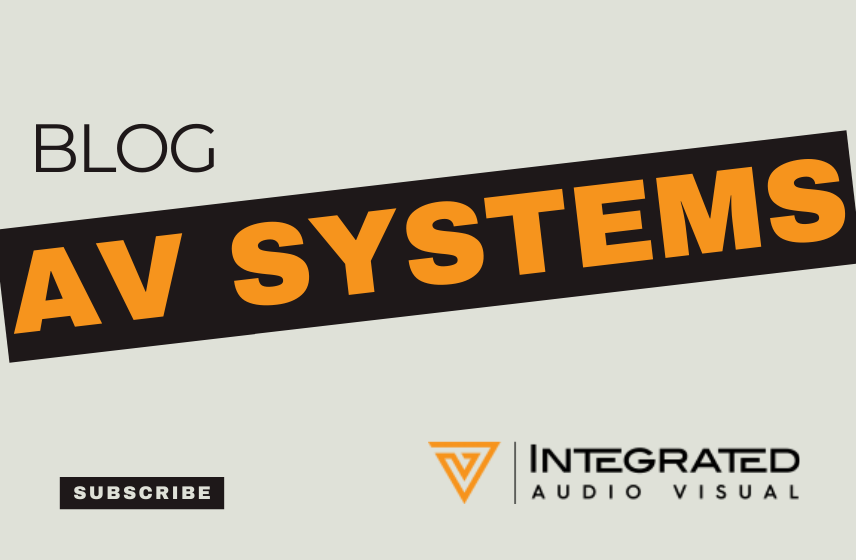As hybrid work becomes the new normal, businesses are reimagining their offices to support both in-person and remote collaboration. At the center of this transformation? Audio-Visual (AV) systems.
Far beyond traditional screens and speakers, modern AV integration plays a crucial role in making hybrid workplaces functional, efficient, and engaging—for everyone, no matter where they are.
In this post, we’ll explore how smart AV solutions power the hybrid work model, from video conferencing and acoustic design to wireless presentations and seamless cross-location teamwork.
Why AV Systems Are Critical to Hybrid Work
The shift to hybrid work—where teams split time between home and the office—demands technology that connects people across locations in real-time. AV systems ensure that employees have the same high-quality experience whether they’re sitting in a conference room or dialing in from their kitchen table.
Without integrated AV, hybrid collaboration often suffers from:
- Poor video/audio quality
- Awkward meeting setups
- Compatibility issues between devices
- Disengaged remote participants
A well-designed AV infrastructure solves these problems by making hybrid interactions seamless, consistent, and intuitive.
1. Professional Video Conferencing Setups
In a hybrid work environment, video conferencing is a daily necessity—not a luxury. Whether you’re running Zoom, Microsoft Teams, or Google Meet, integrated AV ensures crystal-clear communication and a professional experience.
Key components include:
- High-resolution cameras with auto-framing and tracking
- Beamforming microphones and quality speaker systems
- Dual-display setups for content sharing and face-to-face interaction
- Touch-panel controls for effortless meeting management
Benefits:
- Enhanced communication clarity
- More engaging remote interactions
- Reduced meeting fatigue
2. Acoustic Treatment for Clear Audio
Great video quality means nothing if your audio is poor. Hybrid offices require acoustic optimization to eliminate echo, background noise, and sound distortion.
Acoustic treatments may include:
- Sound-absorbing wall panels
- Ceiling tiles and carpeting
- Microphone placement strategy
- Echo-cancellation technology
Benefits:
- Improved voice clarity
- Professional-sounding meetings
- Better experience for remote participants
3. Wireless Presentation Systems
Gone are the days of scrambling for cables. Wireless presentation technology allows team members to instantly share content from laptops, tablets, or phones—no dongles required.
Popular wireless AV systems include:
- Barco ClickShare
- Crestron AirMedia
- Mersive Solstice
Benefits:
- Fast and flexible collaboration
- Supports bring-your-own-device (BYOD) policies
- Keeps meeting rooms clean and clutter-free
4. Cross-Location Collaboration Tools
Integrated AV solutions make multi-office collaboration effortless. Whether you’re hosting a town hall across multiple cities or running a design review with remote stakeholders, your AV system should be equipped to scale.
Integrated tools might include:
- Cloud-based video conferencing platforms
- Room scheduling displays with presence detection
- Centralized management dashboards for IT support
- AV-over-IP infrastructure for scalable deployments
Benefits:
- Unified communication between locations
- Easier management for IT teams
- Scalable systems that grow with your business
AV Integration: More Than Just Equipment
What separates a true hybrid-ready office from one that’s just “trying to make it work” is AV integration. It’s not enough to buy the gear—you need a system designed for:
- Interoperability between devices
- Centralized control and automation
- User-friendly interfaces
- Minimal setup and maximum reliability
Partnering with an experienced AV integrator ensures your technology is tailored to your workflows, space, and team needs.

Future-Proofing the Hybrid Office
As hybrid work evolves, so will your tech needs. Integrated AV systems are built for scalability, allowing you to add rooms, upgrade equipment, or support new platforms without starting from scratch.
Emerging trends include:
- AI-powered cameras with speaker tracking
- Voice-activated meeting controls
- Real-time transcription and language translation
- AV analytics for usage and performance insights
Final Thoughts
Hybrid work is here to stay—and AV systems are the foundation that make it work. From high-quality video conferencing to smart room acoustics and wireless sharing, a professionally integrated AV solution transforms your workplace into a modern hub of productivity and connection.
Don’t settle for makeshift solutions. Invest in AV integration that supports your team, streamlines your workflows, and sets you up for long-term success in a hybrid world.
Need Help Upgrading Your AV Setup?
If your office is ready to embrace hybrid work with confidence, our team is here to help. Contact us today to discuss a custom AV solution designed for the modern workplace.


